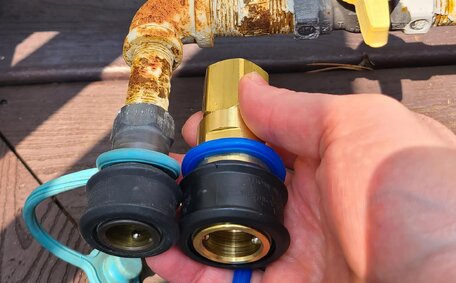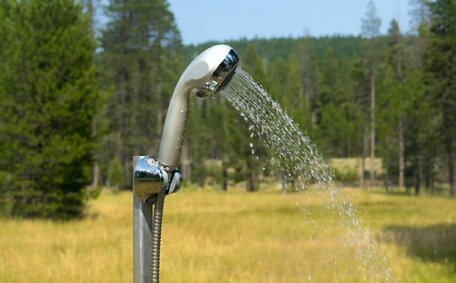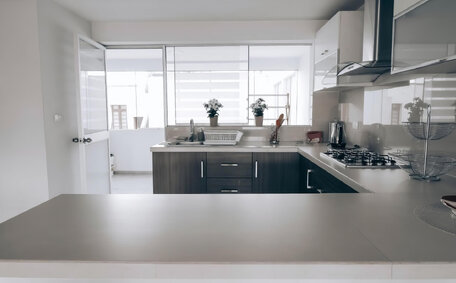Introduction: Gas vs Electric - The Ongoing Debate
The choice between gas and electric heating systems presents a nuanced challenge for households trying to balance cost-effectiveness with efficiency.
In Gladesville, Sydney, homeowners often struggle with the running costs of gas or electric systems, especially when it’s time to replace crucial components or appliances.
On the surface, it seems straightforward: gas often incurs lower daily operating costs, while electric heating, despite its higher energy efficiency, might not be as cost-effective in the long term. However, it’s a complex decision influenced by numerous factors, including energy usage, greenhouse emissions, and overall operating costs.
This comprehensive analysis delves into the gas vs electric debate, elucidating the pros and cons of each to ascertain the superior choice for varied household needs.
Comparing Installation Costs: Gas vs Electric
Initial installation costs and subsequent energy consumption differ markedly between gas and electric appliance systems. Gas appliances usually demand higher installation expenses due to the necessity of a natural gas connection, and their cost per unit can be higher than electricity in the long run. While electric appliances have lower initial fees due to their plug-and-play nature, they may incur higher per-hour costs in the long term compared to gas models.
| Water heater | $1,800 - $3,500 | $500 - $1,500 |
| Cooktop/oven | $2,000 - $3,000 | $100 - $500 |
| Space heater | $150 - $500 | $20 - $50 |
The table illustrates that, while gas systems necessitate a higher initial outlay, they could provide a steadier daily heat supply. Homeowners need to consider that energy price can vary, reflecting on how much they can save in the long-term on energy bills. Our next section delves into how your home can benefit from the efficiency and running costs of both gas electricity systems.
Evaluating Efficiency: How Gas and Electric Appliances Compare
When evaluating an electric heating system, we examine how much energy the system can effectively utilise compared to the amount of energy it consumes. More efficient appliances maximise energy usage, often using more energy effectively while minimising wastage.
Standard electric appliances, including electric boilers, generally display greater energy efficiency compared to gas alternatives. Conversely, traditional gas storage tank water heaters typically have an energy factor (EF) around 0.5 to 0.6, which is lower compared to electric heating.
For instance, an electric storage water heater often boasts an EF above 0.8, implying that it effectively uses more than 80% of the consumed energy for heating water.
Yet, innovative condensing gas heating appliances are starting to match the efficiency of heat pump hot water systems, even amidst escalating gas prices. These appliances capture heat that would otherwise be lost up the chimney, recycling it to warm the water. Yet, homeowners comparing efficient electric heaters might find their heating performance increasingly competitive, making the decision more challenging.
When choosing any new gas heaters or electric appliance, look for its energy rating:
- 5-6 star rated appliances are the most efficient.
- Check the appliance’s energy label for exact statistics.
- Condensing technology improves gas appliance efficiency.
Though electric appliances can be more efficient, modern and properly installed gas systems often prove to be cheaper than electricity, offering substantial energy savings.
Operating Costs Over Time: Gas vs Electric
When assessing long-term operating costs and considering electricity price fluctuations, gas appliances generally remain cheaper for longer periods than their electric counterparts. Despite electricity cost fluctuations, gas prices have remained comparatively stable over the past decade, a considerable factor amidst escalating energy prices.
The following graph compares the annual gas energy costs of operating common systems in a Gladesville household.
On average, households save about $200 annually by opting for gas hot water systems over electric ones. Moreover, gas ovens and cooktops are more cost-effective, offering households around $150 in annual savings over their electric alternatives.
Over a 10-year period, these compounding savings from using gas appliances can help make significant financial differences, saving a household much more than $1,000. It’s also remembered that newer high-efficiency gas models increasingly narrow the energy efficiency gap with electricity, making them a viable option to heat your home.
Ultimately, while electric devices are catching up, various types gas remain the more economical fuel source for heating water, cooking, and home heating in Gladesville.
Environmental Impact: Gas and Electric Emissions
Assessing the emissions from gas and electric appliances is essential to understanding their overall environmental impact. Natural gas produces carbon dioxide and methane when burned. Gas water heaters and furnaces have higher greenhouse emissions than electric alternatives with no solar power or from the traditional grid electricity sources.
However, newer high-efficiency gas boiler models can also substantially reduce emissions, aligning with net zero goals, similar to how an electric vehicle reduces emissions through better technology and performance. Gas boilers and furnaces with high AFUE ratings, over 90%, considerably reduce emissions compared to standard models. Some households, aiming to get off gas and not connected to the gas network, choose high-efficiency gas appliances, systems can help offset fossil fuel usage.
Ultimately for Gladesville homeowners seeking to minimise their carbon footprint, using natural gas wisely is recommended:
- Choosing the most energy-efficient natural gas appliances or their electric heating hot counterparts available.
- Using solar PV systems to power electric devices renewably.
- Improving home heating insulation to reduce overall heating cooling requirements.
- Considering induction stove options over traditional gas units powered by renewable electricity.
As energy grids shift towards renewable sources, emissions from electric appliances will decrease over time. But for now, upgraded high-efficiency gas devices, like a central heating system, can play a transitional role in sustainable household energy usage when paired with rooftop solar in Gladesville.
Household Energy Trends and Predictions
In forecasting household energy trends, technological advancements and changes in environmental policy will likely sway Gladesville homeowners’ choice between gas and electric solutions.
Advancements in energy efficiency and integration with smart home technology are making electric appliances increasingly attractive for domestic use. However, we’re also seeing a rise in the installation of new, high-efficiency gas ducted heating systems. These systems heat water effectively, allowing households to learn about reduction in carbon emissions while still benefiting from lower operational costs with natural gas vs electricity.
In terms of policy, increased momentum towards renewable energy and emissions reduction goals will drive further electrification of homes. But natural gas will continue playing a transitional role as homeowners find out about its relative affordability. Gas appliances may be integrated into your home energy system, paired with rooftop solar and home batteries, to offset fossil fuel dependence.
Ultimately we expect Gladesville households will take a hybrid approach - electrifying some appliances while retaining modern gas systems in certain cases based on costs, efficiency gains and lifestyle needs. This mixed use of gas and renewable-powered electric devices compels homeowners to compare energy options that will dominate home energy plans over the coming decade.
Optimizing Your Energy Use and Costs
Optimising energy use, regardless of choosing gas or electric appliances, is pivotal in reducing costs and environmental impact. Here are key tips for Gladesville homeowners, including the installation of solar hot water systems:
- Select the most energy-efficient models when replacing appliances - aim for 5-6 star ratings.
- Service your gas appliances annually and clean electric filters regularly for maximum efficiency.
- Proper insulation is more economical than electric heating and can greatly reduce the demand for heating and cooling in your home.
- Install solar panels to power electric appliances renewably, offsetting gas running costs.
- Consider induction cooktops run on solar power instead of gas stoves.
- Analyse each appliance’s expected longevity and maintenance costs before deciding.
- Compare time-of-use electricity rates to shift usage to cheaper periods during day.
- Monitor energy consumption habits and identify wastage areas for improvement.
How do you currently use gas, electricity, or both - optimising household energy use is an ongoing process. Upgrading ageing appliances, tapping solar energy sources, and refining usage habits will save money and lessen environmental footprints over time for Gladesville homes.
Conclusion: Key Considerations for Your Decision
When deciding between gas and electric appliances, Gladesville homeowners need to weigh upfront costs against long-term savings, efficiency gains, and environmental impacts. Consider these key factors:
- Installation costs - Gas tends to require a bigger initial investment.
- Operating Costs - Gas appliances typically incur lower costs per use, making them more economical over time.
- Energy efficiency - Electric models edge out gas, but new high-efficiency gas options narrow the gap.
- Emissions and carbon footprint - Electricity from renewables is cleaner, but modern gas appliances are improving.
A one-size-fits-all solution does not exist. The optimal choice is contingent upon your household’s specific priorities. For tailored advice on cost-effectively optimising your home’s energy mix, Gladesville homeowners are invited to contact Gladesville Plumbing at 1300 349 338 or [email protected].






